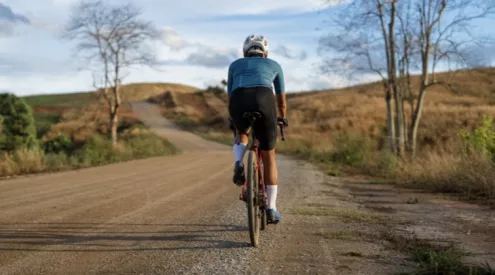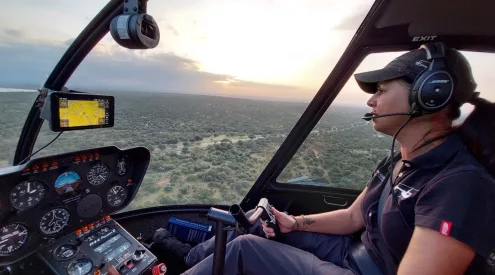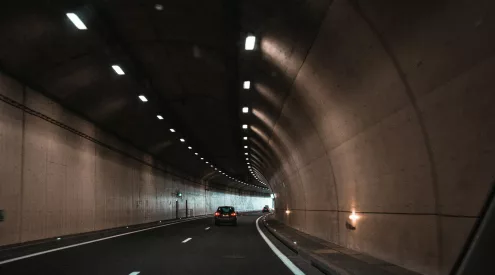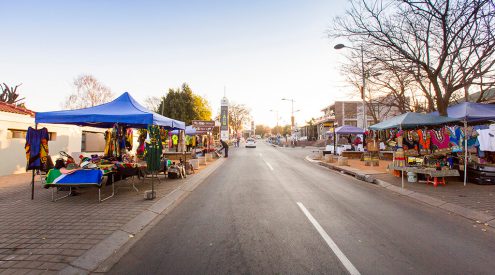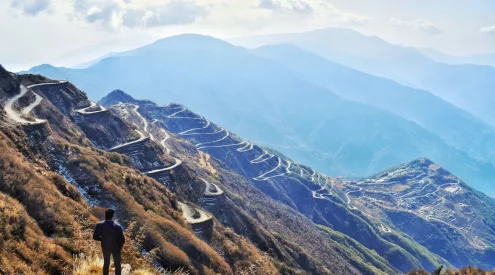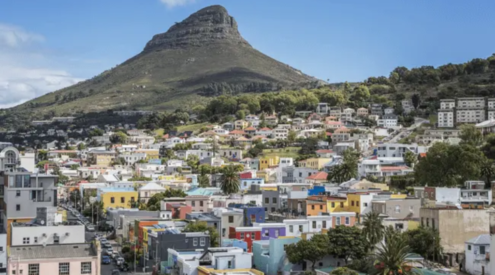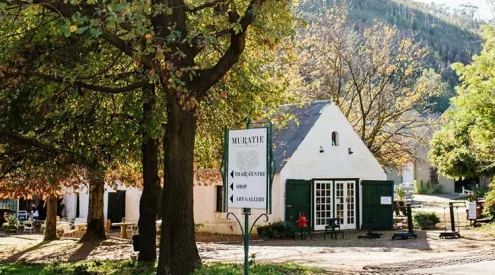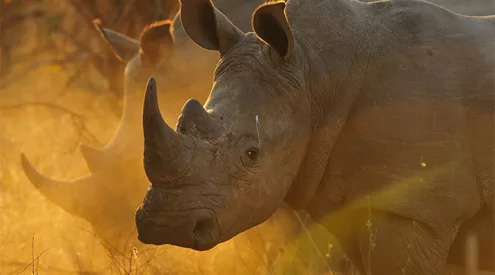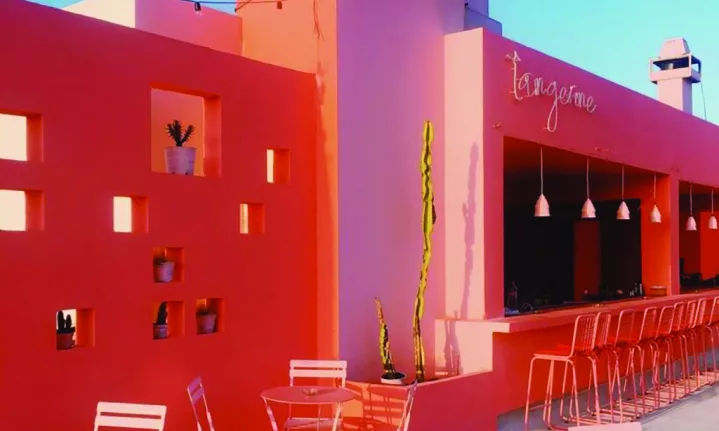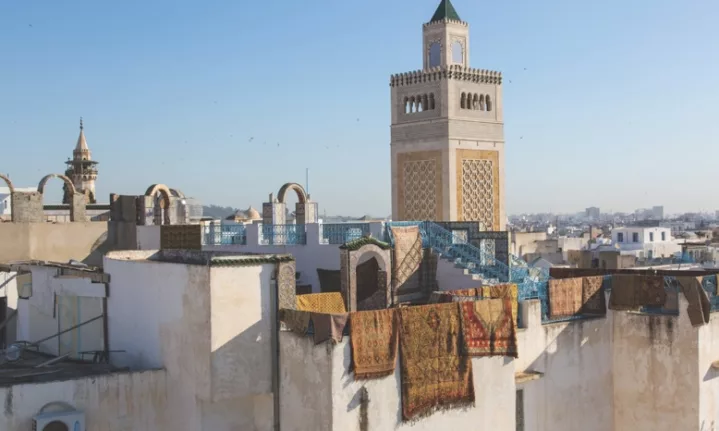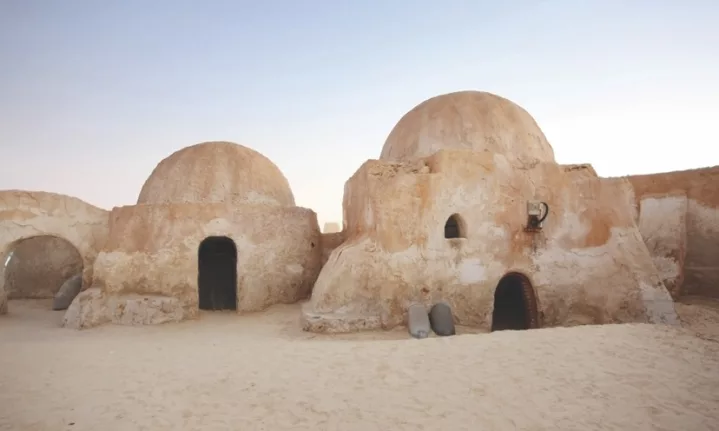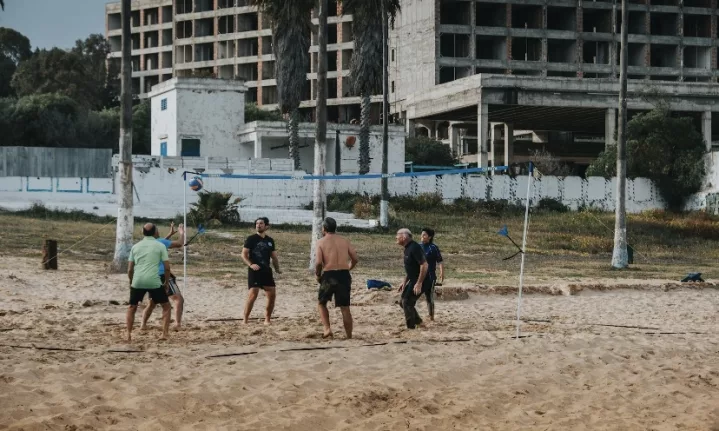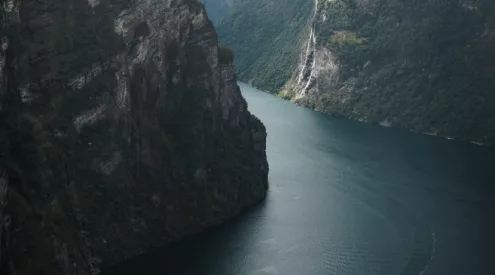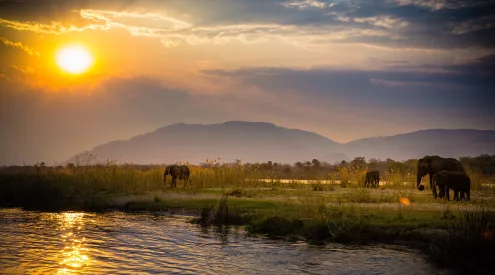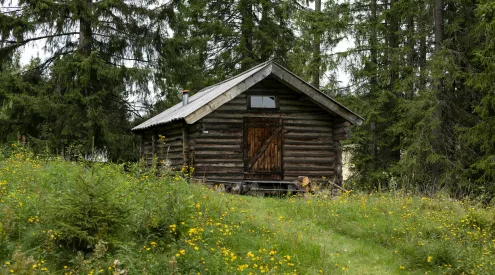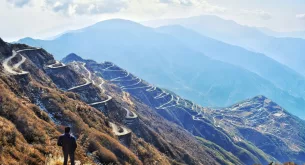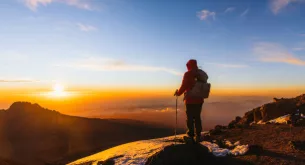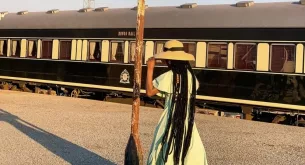Tunisia and its fusion of cultures make it a refreshing place full of surprises: from the sea view of Sidi Bou Said to the dynamic energy of the Medina in the centre of Tunis, a boutique hotel in the heart of the desert, the music scene and dynamic nightlife.
Tunisia is a liberal Islamic country with a complex, rich history, and has experienced many cultural influences: French, Italian and Maltese. The result is a country booming with offerings from music to food and the arts that celebrate its heritage with a modern twist to surprise even the most seasoned travellers.
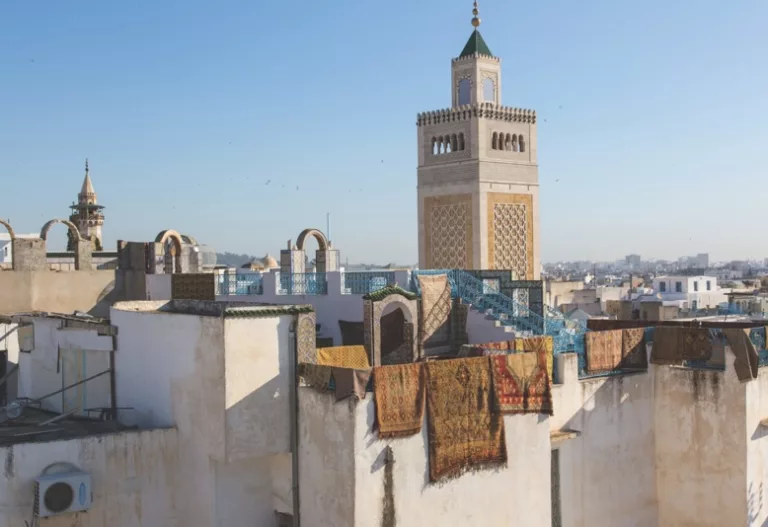
My father’s job had required him to work in Tunisia that year, and I’d accompanied him a few times. I decided to spend my three-month summer break from university there after falling for the whitewashed houses in a bohemian Tunisian style with bright blue accents that provide a backdrop for the locals’ relaxed, idiosyncratic nature.
A typical day involves waking up early to walk on a beach where sun-baked adults sit under makeshift umbrellas, smoking shisha pipes and helping their children build sandcastles. Lunchtime tends to be at a local hole-in-the-wall establishment serving substantial yet inexpensive paper-wrapped sandwiches packed full of harissa, meat and salad, which you consume sitting on a wall. After walking home, salty and sandy, ever hopeful you will one day become as sun-baked as the locals, you prepare for dinner and whatever else the night may bring.
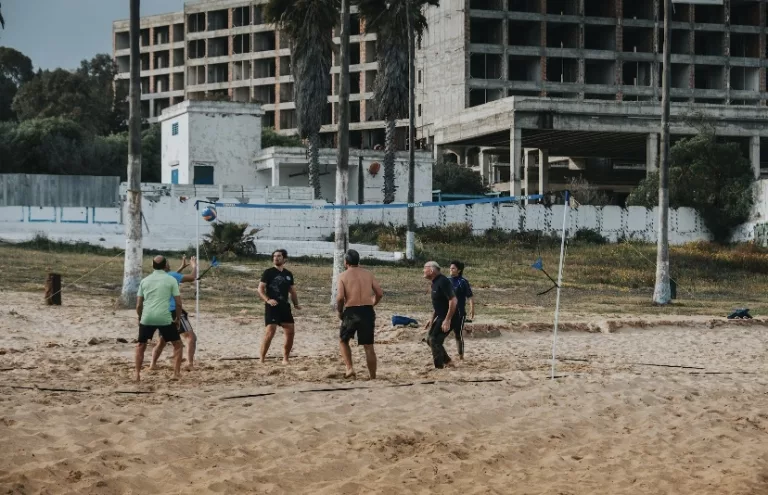
I arrived in Tunisia after spending too long in London, where I had decided ambition is the secret to a long and unsuccessful life. In Tunis, the capital of Tunisia, the only glass-shattering realisation I would experience would be the need to stay.
I spent most of my trip in a small seaside suburb bordering the chaotic capital, where I became part of the furniture at two restaurants, Yüka and Au Bon Vieux Temps. When I visited, Yüka was a complex of various stages for DJs and artists, where Monday night could be equally, if not more, thrilling than a risk-free Friday night.
Phénomènes Joyeux, the collective who founded Yüka, says on the back of their menus that they ‘decided to create a place ruled by love, tolerance and joy … [where] day and night, this place started to spread infinite pleasure and delight in the lives of its guests’.
There, I saw some of the most brilliant artists, namely Bedouin Burger (a Lebanese-Syrian duo who mesh classical and Arabic folk music with streaks of modernity), Guts (a French groove DJ) and many a Tunisian artist. The complex has since closed, and Yüka is in five new locations in Tunis: flō, El Firma, SAMA, Bayt and Amélie m’a dit, all being hospitality ventures except the latter, a pharmacy concept.
ALSO READ: African countries every explorer should visit
Yüka, Au Bon Vieux Temps and Tangerine (a rooftop cocktail bar) sum up Tunisia in that every night is different and surprising. The waiters are funny and flirty and always dance in the corner with a twinkle in their eyes, which makes each establishment welcoming and vibrant.
Tunisia is the northernmost country in Africa, bordered by Algeria, Libya and the Mediterranean Sea, and shares maritime borders through Sicily and Sardinia, and Malta to the east. For history buffs, the country is also home to the archaeological sites of Carthage, which date back to the 9th Century BC. Tunis, the largest of the cities in Tunisia, is chaotic compared to the surrounding serenity of the seaside. It’s heaving with people, colours, cafes and a giant mosque in the centre – good luck resisting the urge to buy something too impractical to fit in your luggage!
Kairouan is known as the ancient home of carpetmaking and the Great Mosque, one of the biggest Islamic monuments in North Africa, where local legend has it that seven visits equal Hajj.
Tunisia was the breadbasket for the Roman Empire during their reign – they captured the country during the Third Punic War, and well-preserved Roman ruins are scattered throughout the country. Tunisia’s laissez-faire attitude extends to placing little restriction on where you can walk and what you can touch and photograph. When visiting the ruins of Carthage, the security guard looked confused when I asked to buy an entry ticket. Punic ports, Antoninus Baths, Byrsa Hill and the Carthage Museum, which houses Punic artefacts, are all worth visiting.
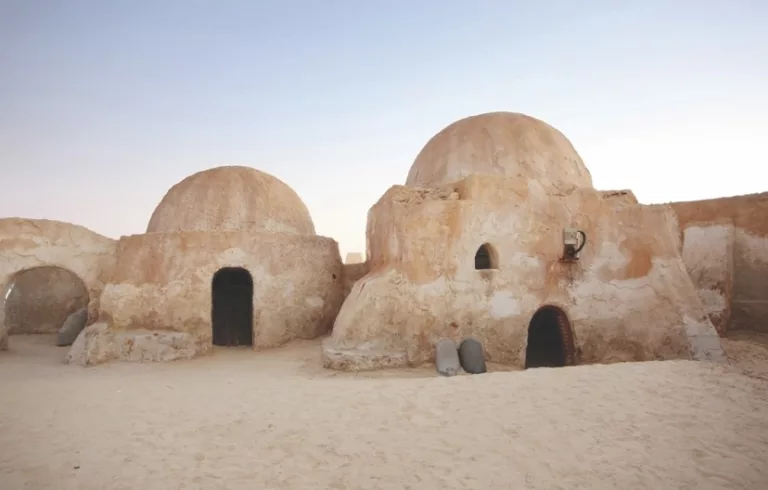
While I could write endlessly about the archaeological and historical elements of Tunisia, I would be lying if I said my experience was not more geared towards good food, drinks and a more local experience (while ensuring the culture vulture within me was still at least slightly satiated).
Tunisia’s complicated history has resulted in a melting pot of different cultures, all of which have left their mark, for example, the French language, boulangeries and cuisine.
Au Bon Vieux Temps in La Marsa is a Tunisian-French dining experience where a local guitar player performs live and enjoys the atmosphere as much as the patrons. The same goes for the waiters. Even the owner has a cigarette in his hand. The service is impeccable.
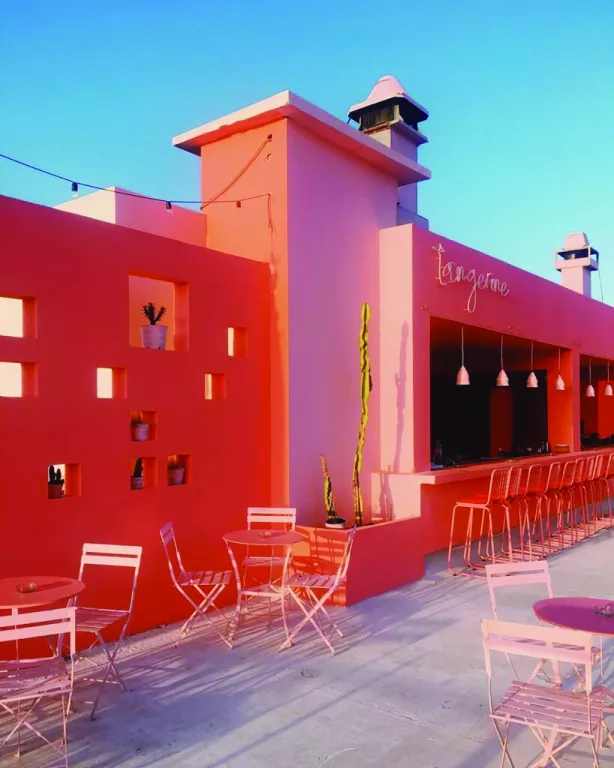
Tangerine in Gammarth, a short drive from La Marsa, serves lip-smacking cocktails with tapas to share. It operates on a first come, first served basis but offers free beer to those patient enough to wait for a table on busier evenings.
Sidi Bou Said is known for its cobbled streets, ocean views, serene beaches, dining experiences and market stalls. La Villa Bleue is my pick of places to stay, as this hotel is a highly curated yet traditional Tunisian home. With Tunisian food, tiles, interior and art to match, it’s the perfect place for a calm getaway – with the option of getting your teeth into the hustle and bustle, too.
Tozeur is a massive oasis in the Sahara Desert, south Tunisia, with thousands of palm trees and the largest exporter of dates in the country. I’m no Star Wars expert, but if you are, this city was the set of many of the movies, and the set of Tatooine still exists but is now home to residents who’ve moved there from nearby towns. Walking in Tozeur, you’ll recognise the inspiration for Star Wars costumes in the long, multi-layered dresses, the traditional attire local men wear while riding mopeds past the Medina’s intricate brick walls. I recommend staying at Dar Saida Beya Tozeur for easy access to the city and a short drive from the salt lake of Chott el Djerid.
Tunisia is one of those places small enough to visit but bursting at the seams with quiet creativity. It offers a Mediterranean lifestyle with a twist at a fraction of the cost of other holiday destinations. And the locals are distinct, expressive and unrestrained. You’ll meet someone who will change your perspective on what leading a successful life means to you. This liberal, broad-minded, abundant place has significantly impacted how I view the world, inviting me to abandon the boxes we tend to try to put people in.
This article was written by Hum Hunt-Davis for Getaway’s October 2024 print edition. Find us on shelves for more!
Pictures: Sourced/Courtesy Images
Follow us on social media for more travel news, inspiration, and guides. You can also tag us to be featured.
TikTok | Instagram | Facebook | Twitter
ALSO READ: Exploring The Great Outdoors in Scandinavia

